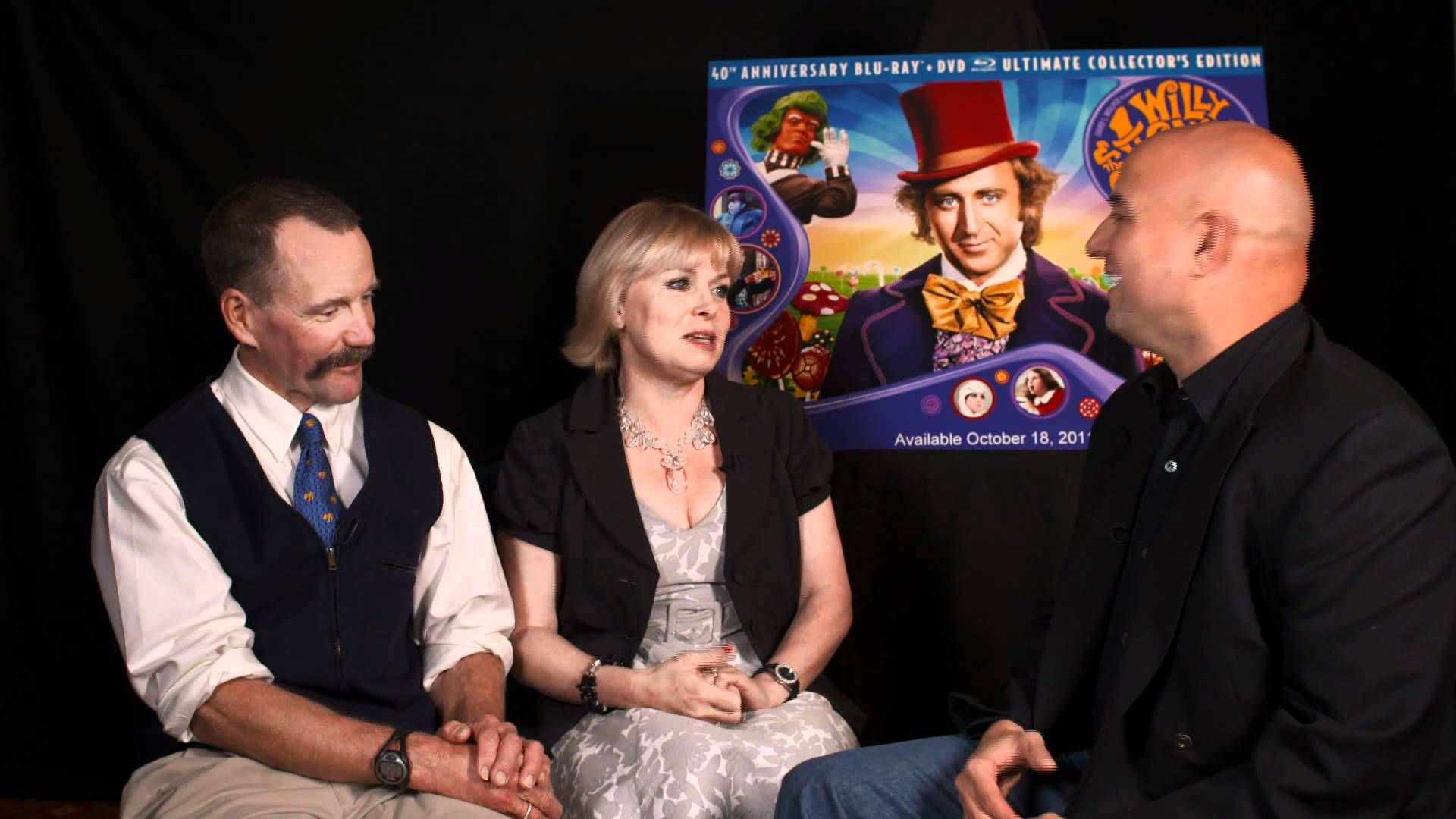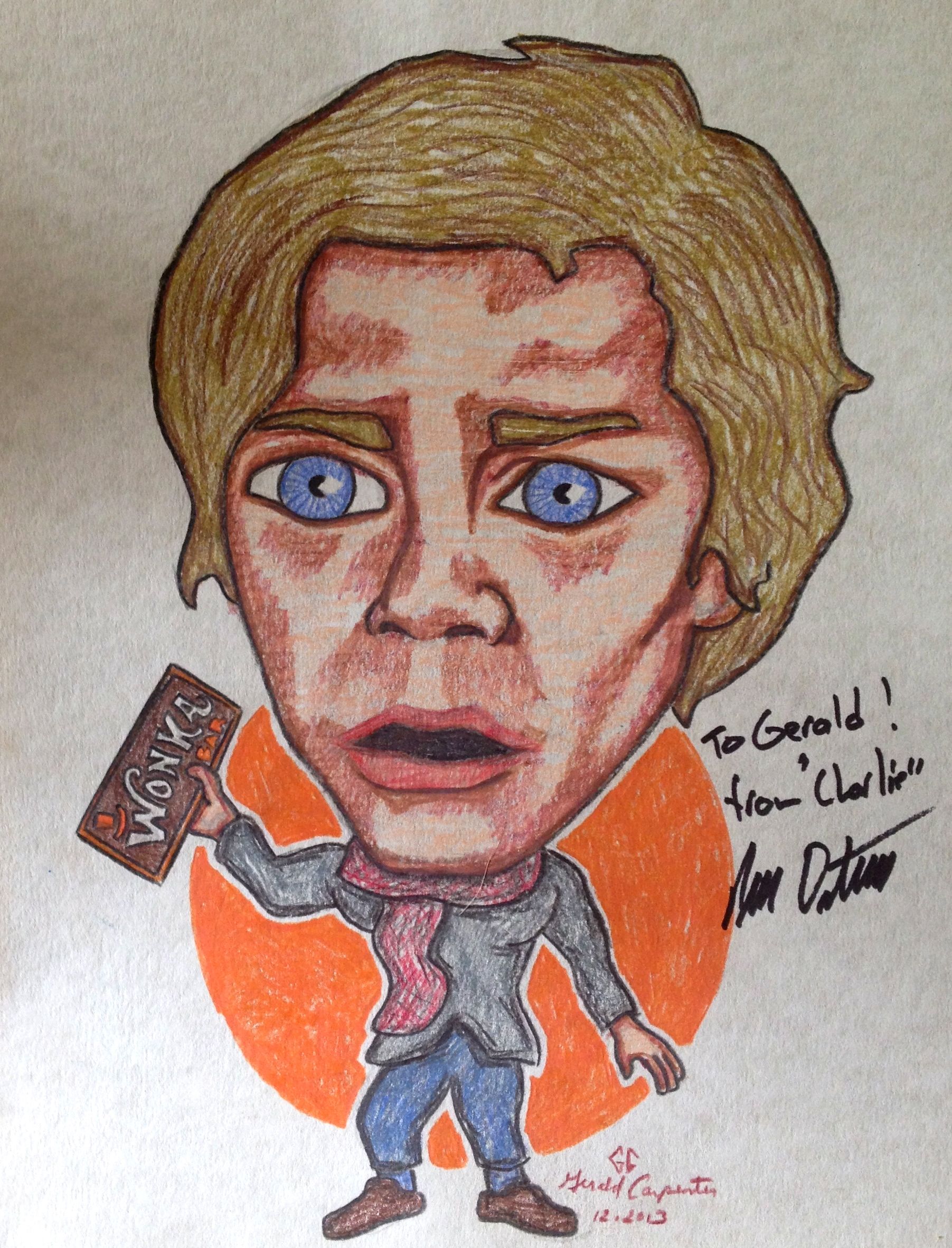For many, the image of a wide-eyed Charlie Bucket, finding that golden ticket, remains a truly cherished memory. That iconic role in "Willy Wonka & the Chocolate Factory" brought Peter Ostrum into our homes and hearts, leaving a lasting impression on generations. Yet, a question often pops up for fans and those curious about the film world: does Peter Ostrum still receive royalties from his unforgettable performance? It's a query that, you know, really gets people thinking about how actors, especially child actors, are compensated for their work over time.
It’s a bit fascinating to consider the financial side of such a beloved movie, particularly when it has stood the test of time so well. People often wonder about the long-term earnings for stars of classic films. The idea of ongoing payments, sometimes called residuals or royalties, can seem a little mysterious to those outside the entertainment business, can't it?
This discussion about peter ostrum royalties isn't just about money, though. It’s also about the unique path Peter Ostrum took after his brief moment in the spotlight. His story offers a chance to look at the choices people make and the different kinds of success that exist, which is pretty interesting, if you think about it.
Table of Contents
- Peter Ostrum: A Quick Look
- The "Willy Wonka" Legacy and Its Pay Structure
- Did Peter Ostrum Get Royalties? The Real Scoop
- Life Beyond the Chocolate Factory
- The Value of Enduring Roles
- Common Questions About Peter Ostrum's Earnings
Peter Ostrum: A Quick Look
Peter Ostrum, born on November 1, 1955, is best known for his single acting role as Charlie Bucket in the 1971 musical film "Willy Wonka & the Chocolate Factory." He was just 12 years old when he was picked for the part, a discovery that happened, you know, during a school play. His gentle, honest portrayal of Charlie quickly won over audiences worldwide, making him an instant, if brief, star.
After the film, Peter made a conscious choice not to continue acting. This decision, in a way, set him apart from many other child performers. He went on to pursue a very different career path, one that, honestly, many people find quite admirable. It really shows that success can be found in many different fields.
Personal Details and Biography
| Detail | Information |
|---|---|
| Full Name | Peter Gardner Ostrum |
| Born | November 1, 1955 |
| Birthplace | Dallas, Texas, USA |
| Occupation | Veterinarian (former child actor) |
| Known For | Playing Charlie Bucket in "Willy Wonka & the Chocolate Factory" (1971) |
| Years Active | 1971 (as an actor) |
| Education | Cornell University College of Veterinary Medicine |
The "Willy Wonka" Legacy and Its Pay Structure
"Willy Wonka & the Chocolate Factory" wasn't an immediate box office smash when it first came out, but it grew into a true classic over the years. Its enduring popularity, thanks to television airings, home video releases, and now streaming services, means it’s always being discovered by new viewers. This kind of lasting appeal, in a way, raises questions about how the original cast might benefit financially.
Back in the early 1970s, the way actors were paid for films was a little different from today. Residuals, which are payments for reruns or repeated use of a performance, were not as common or as robust as they are now. Contracts for child actors, too, often had different terms compared to those for adult stars. So, it's not quite like, you know, a modern streaming deal.
Typically, actors receive a salary for their work during production. Royalties or residuals come into play when the film is shown again, like on TV, or sold on DVD, or licensed to streaming platforms. These payments are usually governed by union agreements, such as those with the Screen Actors Guild (SAG) in the United States. However, the specific terms can vary widely based on the contract signed at the time, and the year the film was made really matters.
Did Peter Ostrum Get Royalties? The Real Scoop
The question of peter ostrum royalties is one that comes up a lot, and the simple answer, based on what's known, is that his earnings from "Willy Wonka & the Chocolate Factory" were likely a one-time payment for his work on the film. He reportedly received around $10,000 for his role, which was a good sum for a child actor in 1971, you know, for that era.
At the time the movie was made, it was pretty common for actors, especially those in one-off roles or child actors, to receive a flat fee. The concept of ongoing residuals for every single rerun or streaming view was not nearly as developed or widespread as it is today. So, in some respects, his contract would have reflected the standard practices of that period.
It's also worth remembering that Peter Ostrum was not a union actor when he filmed "Willy Wonka." He was a non-union child actor, which means his contract would not have been subject to the same residual agreements that established union actors might have had. This is a pretty significant detail when talking about long-term payments. So, for him, it was more about the initial payment.
While the film has gone on to earn millions through various forms of distribution over the decades, it’s widely understood that Peter Ostrum did not receive significant, if any, ongoing royalty payments from its continued popularity. His main compensation came from his initial salary. This is, you know, how many older film contracts were structured, especially for new faces.
He has, however, apparently received some very small, occasional residual checks over the years, likely from specific union agreements that might have been established later or for very particular types of distribution. These amounts, though, are typically described as being quite minimal, more symbolic than substantial. So, it's not really a steady income stream for him.
Life Beyond the Chocolate Factory
After "Willy Wonka & the Chocolate Factory," Peter Ostrum chose a path far removed from Hollywood. He decided, pretty early on, that acting wasn't what he wanted to do long-term. This was a pretty clear decision for him, you know, even at a young age. He returned to his regular life and focused on his education, which is a rather sensible choice.
He went on to earn a degree in veterinary medicine from Cornell University College of Veterinary Medicine in 1984. Since then, he has built a successful career as a veterinarian, specializing in large animals, particularly horses. He practices in Lowville, New York, where he lives a relatively private life with his family. It’s a very different kind of life than one might expect for a former child star.
His dedication to his chosen profession is pretty clear. He often talks about his love for animals and his work, which, you know, seems to bring him a lot of satisfaction. He does, however, occasionally participate in events related to "Willy Wonka," like cast reunions or interviews, showing that he holds fond memories of his time on set. These appearances are rare, but they are a nice nod to his past.
Peter Ostrum's story is a good reminder that not every child actor continues in the entertainment industry. Some find fulfillment in entirely different fields, building lives that are, in some respects, more conventional. His journey, you know, shows that there are many ways to find happiness and purpose after a brief moment in the spotlight.
The Value of Enduring Roles
While the topic of peter ostrum royalties often centers on financial compensation, it's also worth considering the other forms of value that come from an enduring role like Charlie Bucket. The film has given Peter Ostrum a unique place in pop culture history, a connection to a beloved story that continues to resonate with people of all ages. This kind of legacy, you know, is something money can't buy.
The experience of making such a memorable film, working with people like Gene Wilder, must have been truly special. Those memories and the impact of that creative process are, in a way, their own form of payment. He often speaks fondly of his time on set, which, you know, suggests it was a very positive experience for him.
Furthermore, his unique background as "Charlie Bucket" has provided him with opportunities to connect with fans and share his story, which he seems to appreciate. It gives him a platform, albeit a small one, to talk about his life and his passion for veterinary medicine. This kind of recognition, you know, can open doors in unexpected ways.
Ultimately, Peter Ostrum's story is a testament to finding joy and purpose outside of traditional celebrity. His choice to pursue a career he loved, rather than chasing further fame, offers a compelling example for anyone considering their life's path. It really is a pretty inspiring tale, if you think about it.
Common Questions About Peter Ostrum's Earnings
Does Peter Ostrum get royalties from Willy Wonka?
Based on available information, Peter Ostrum did not receive significant ongoing royalty payments from "Willy Wonka & the Chocolate Factory." His compensation was primarily a one-time payment for his role. Residuals for films from that era, especially for non-union child actors, were not structured in the same way they are today, so it was more about the initial payment, you know.
What did Peter Ostrum do after Willy Wonka?
After his single acting role, Peter Ostrum chose to leave the entertainment industry. He pursued a career in veterinary medicine, earning his degree from Cornell University. He has been a practicing veterinarian specializing in large animals, like horses, for many years, which is a pretty different path, you know, for a former child star.
How much did the child actors make from Willy Wonka?
Specific figures for all child actors in "Willy Wonka & the Chocolate Factory" are not widely publicized. However, it is reported that Peter Ostrum received approximately $10,000 for his role as Charlie Bucket. This was considered a fair sum for a child actor in 1971, you know, for that time period.
Understanding the details surrounding peter ostrum royalties helps shed light on the entertainment industry's financial workings, particularly how things have changed over the decades. His story, in a way, reminds us that a single, memorable role can leave a lasting cultural mark, even if it doesn't lead to continuous financial payouts for the actor. It’s a pretty interesting look at how things work, and you can learn more about child actors and their careers on our site, or even explore how film industry compensation has evolved.



Detail Author:
- Name : Haven Rosenbaum
- Username : leuschke.leslie
- Email : vito47@hotmail.com
- Birthdate : 1987-12-08
- Address : 18911 Wolf Lane Suite 611 Murazikmouth, WV 57161
- Phone : +1-971-824-7310
- Company : Padberg-Hamill
- Job : Correctional Officer
- Bio : Dolore aliquid occaecati asperiores quo odit totam at. Qui rerum iusto tempore ratione. Officiis ut at et optio amet.
Socials
instagram:
- url : https://instagram.com/juniorharvey
- username : juniorharvey
- bio : Vel blanditiis eveniet dolor deleniti. Aliquam magnam sint voluptas amet accusantium quas et.
- followers : 4251
- following : 2296
twitter:
- url : https://twitter.com/harvey2019
- username : harvey2019
- bio : Et aut quis rem. Voluptatem fugit sed quia consequuntur at. Aliquam fuga minus aut rerum quaerat error ut.
- followers : 637
- following : 2822